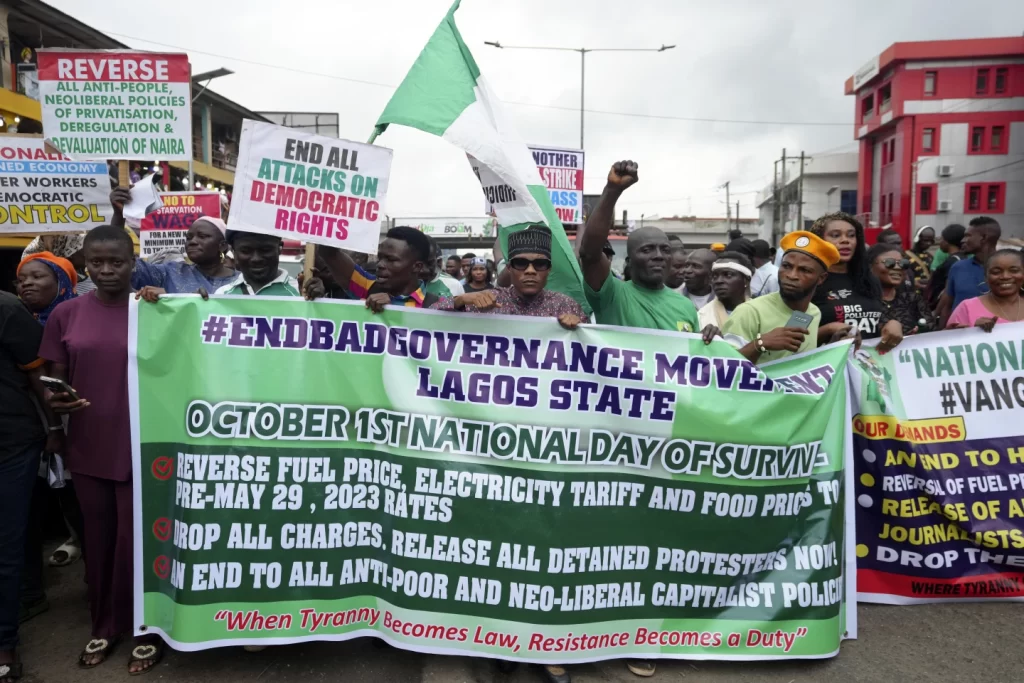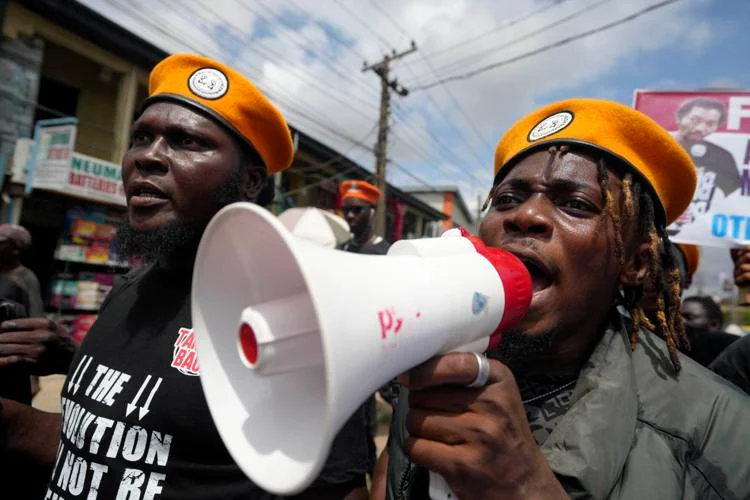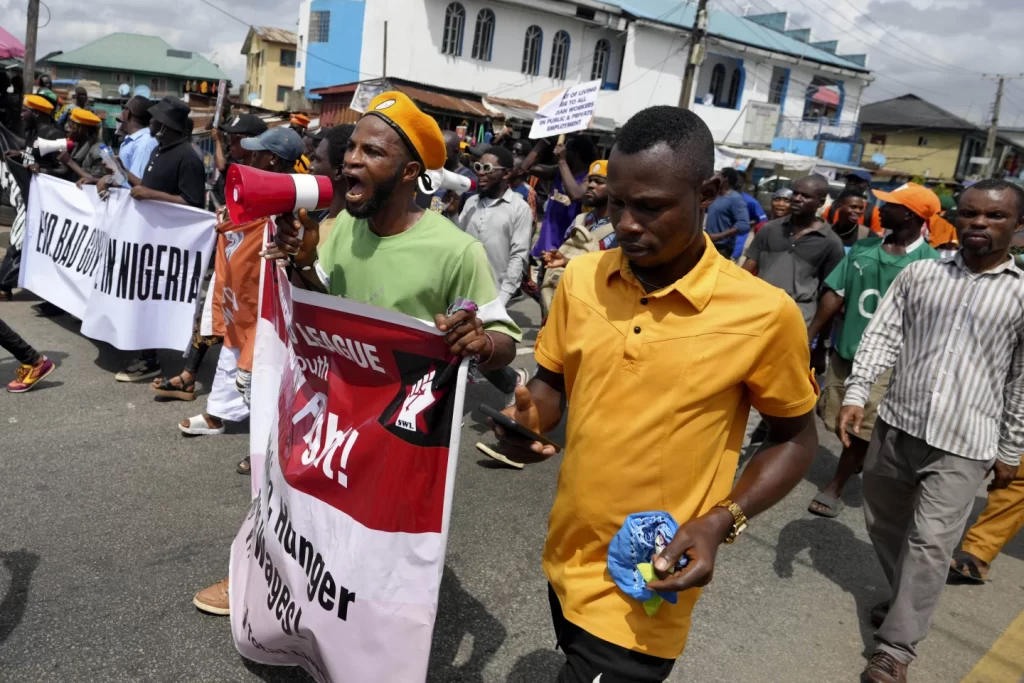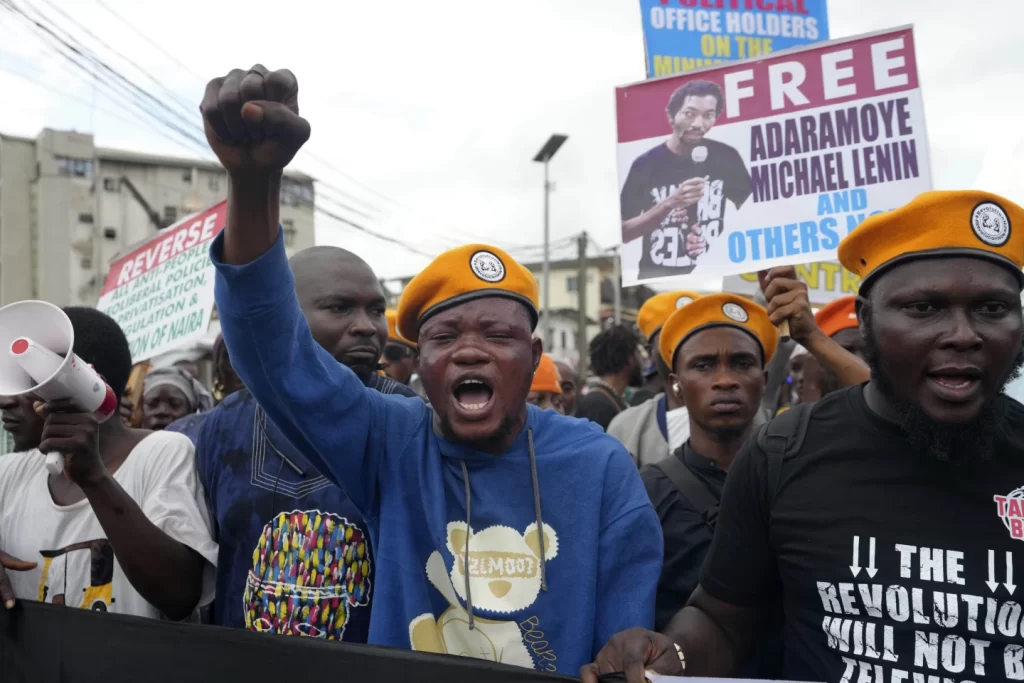Nigeria’s 64th independence anniversary on Tuesday was overshadowed by nationwide protests against economic hardship, with police using tear gas to disperse demonstrators in some areas.

Dozens of protesters in several states waved placards and Nigerian flags, demanding better opportunities and jobs for youth in a country grappling with some of the world’s highest poverty and hunger levels despite being a major oil producer.
This marks the second protest in two months amid worsening economic conditions following government reforms aimed at saving money and attracting foreign investment. The previous demonstration in August resulted in at least 20 protesters killed and hundreds arrested.

President Bola Tinubu, addressing the nation, defended the reforms and called for patience. “Once again, I plead for your patience as the reforms we are implementing show positive signs, and we are beginning to see light at the end of the tunnel,” Tinubu said in a broadcast.
The president highlighted $30 billion in foreign direct investments attracted in the last year and announced a national youth conference to address key issues.

However, the reforms have contributed to pushing inflation to a 28-year high and the naira to record lows against the dollar, exacerbating economic hardships for many Nigerians.
In Abuja, where government officials and military personnel attended an independence anniversary parade, police dispersed protesters in another part of the city with tear gas. Lagos and other major cities saw heavy security presence along key roads.

Cheta Nwanze, managing partner at SBM Intelligence research firm in Lagos, described Nigeria as “an unfortunate case of running very hard and staying in the same place,” citing poor performance in critical areas like education and health.
As the protests gained momentum on social media, many Nigerians voiced their struggles with unemployment and food insecurity.
AP


